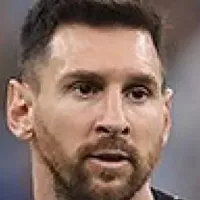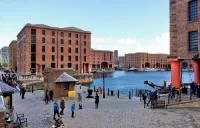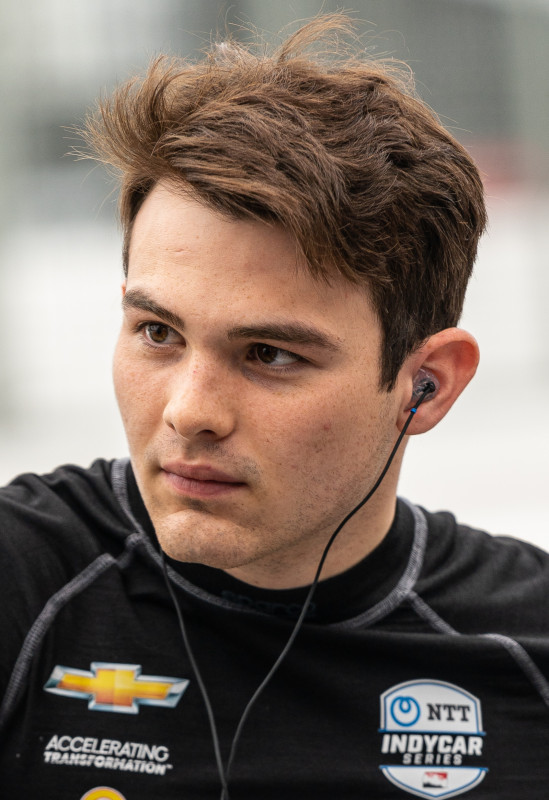1900: Barcelona wears blue and garnet colors for the first time
In 1900, FC Barcelona first wore the blue and garnet colors of their shirt in a match against Hispania.
1901: Participation in Copa Macaya
In 1901, FC Barcelona participated in the first football competition played on the Iberian Peninsula, the Copa Macaya, narrowly losing to Hispania AC.
1905: Last Competition Won
In 1905, FC Barcelona last won a competition, the Campionat de Catalunya.
1908: Hans Gamper Becomes Club President
In 1908, Hans Gamper – now known as Joan Gamper – became club president, attempting to prevent FC Barcelona from shutting down.
March 1909: Move into Camp de la Indústria
On 14 March 1909, FC Barcelona moved into the Camp de la Indústria, a stadium with a capacity of 8,000.
1910: Copa del Rey win and Pyrenees Cup win
In 1910 FC Barcelona won the Copa del Rey and the Pyrenees Cup.
1910: Barcelona designs a new crest
In 1910, FC Barcelona held a competition among its members to design a new crest, and Carles Comamala's suggestion became the crest the club uses today with minor variations.
1912: Recruitment of Paulino Alcántara
In 1912, Joan Gamper recruited Paulino Alcántara, the club's seventh all-time top-scorer.
1913: Copa del del Rey win and Pyrenees Cup win
In 1913 FC Barcelona won the Copa del Rey and the Pyrenees Cup.
1913: Ramón Torralba started playing for the club
In 1913, Ramón Torralba started playing for the club and played until 1928.
February 1917: First tribute match for Ramón Torralba
On 4 February 1917, FC Barcelona held its first tribute match to honor Ramón Torralba, who played from 1913 to 1928. The match was against local side Terrassa where Barcelona won the match 6–2.
1917: Jack Greenwell became the club's first full-time coach
In 1917, Jack Greenwell became FC Barcelona's first full-time coach.
1917: Jack Greenwell begins his first spell as Barcelona's manager
In 1917, Jack Greenwell began his first spell as the manager of Barcelona, serving until 1924.
1917: Recruitment of Jack Greenwell
In 1917, Joan Gamper also recruited Jack Greenwell as FC Barcelona's first full-time manager.
1918: Espanyol's Counter-Petition Against Autonomy
In 1918, Espanyol started a counter-petition against autonomy, reflecting differing political ideologies during that time.
1922: Move to Les Cortes stadium
In 1922, FC Barcelona moved to the new Les Cortes stadium, which they inaugurated the same year. Les Cortes had an initial capacity of 30,000.
1922: Camp de Les Corts is built
In 1922, FC Barcelona was able to build the larger Camp de Les Corts, which had an initial capacity of 20,000 spectators.
1924: End of Jack Greenwell's first spell as Barcelona's manager
In 1924, Jack Greenwell's first spell as the manager of Barcelona ended. He had started in 1917.
June 1925: Ground closure and Gamper's forced resignation
On 14 June 1925, the crowd in the stadium jeered the Royal March. As a reprisal, the ground was closed for six months and Gamper was forced to relinquish the presidency of the club.
1925: End of Gamper's Presidency
Joan Gamper spent a total of 25 years as club president since 1908, finishing his time in the role in 1925.
1926: Transition to professional football
In 1926, The directors of Barcelona publicly claimed to operate a professional football club.
July 1927: Testimonial match for Paulino Alcántara
On 3 July 1927, FC Barcelona held a second testimonial match for Paulino Alcántara, against the Spanish national team.
1928: Start of La Liga Seasons Considered
From the beginning of the La Liga seasons from 1928 to 2022, Espanyol has only managed to end above Barça on three occasions.
1928: Ramón Torralba finished playing for the club
In 1928, Ramón Torralba finished playing for the club, having started in 1913.
1928: Celebration of Spanish Cup Victory
In 1928, victory in the Spanish Cup was celebrated with a poem titled "Oda a Platko" by Rafael Alberti, inspired by the performance of the Barcelona goalkeeper, Franz Platko.
June 1929: Victory in the Spanish League
On 23 June 1929, FC Barcelona won the inaugural Spanish League.
1929: Primera División Inception
In 1929, FC Barcelona was one of three founding members of the Primera División that have never been relegated from the top division since its inception.
July 1930: Gamper's suicide
On 30 July 1930, Joan Gamper committed suicide after a period of depression brought on by personal and financial problems.
1931: Jack Greenwell begins his second spell as Barcelona's manager
In 1931, Jack Greenwell began his second spell as the manager of Barcelona, serving until 1933.
1932: Barça Defined as a Cultural and Sporting Association
In 1932, Barcelona's statutes defined the club as "an association of a cultural and sporting nature," highlighting its relationship with Catalan culture.
1933: End of Jack Greenwell's second spell as Barcelona's manager
In 1933, Jack Greenwell's second spell as the manager of Barcelona ended. He had started in 1931.
1936: Arrest and Execution of Josep Sunyol
In 1936, during Francisco Franco's Coup d'état against the Second Spanish Republic, the president of Barcelona, Josep Sunyol, was arrested and executed without trial by Franco's troops for his political activities.
1937: Mediterranean League title
In 1937, FC Barcelona won their disputed title in the Mediterranean League.
March 1938: Aerial bombardment of Barcelona
On 16 March 1938, FC Barcelona came under aerial bombardment from the Italian Air Force, causing more than 3,000 deaths, with one of the bombs hitting the club's offices.
1939: Beginning of Franco's Rule
In 1939, Francisco Franco's rule began, influencing the activities and on-pitch results of both Barcelona and Real Madrid. While he didn't have a preferred team initially, his Spanish nationalist beliefs led him to associate with establishment teams.
1943: Copa del Generalísimo semi-final against Real Madrid
In 1943, FC Barcelona faced Real Madrid in the semi-finals of Copa del Generalísimo. Real Madrid won the second leg 11-1, which has been alleged to have involved police threats to Barcelona's players.
1944: Grandstand expansion at Les Corts
In 1944, the grandstand at Les Corts was expanded.
1946: Southern stand expansion at Les Corts
In 1946, the southern stand at Les Corts was expanded.
June 1950: Signing of László Kubala
In June 1950, FC Barcelona signed László Kubala, who was to be an important figure at the club.
1950: Northern stand expansion at Les Corts
In 1950, the northern stand at Les Corts was expanded, bringing the total capacity to 60,000 spectators.
1951: Espanyol Achieves Largest Margin Win Against Barcelona
In 1951, Espanyol achieved the largest margin win against Barcelona with a score of 6–0.
1951: Barcelona Wins the First of Five Trophies in a Single Season
In 1951, FC Barcelona began the 1951-1952 season, that would later become known as "El Barça de les Cinc Copes", where the team won five trophies in a single season, a first in Spanish football.
1951: Support for Tram Strike
In 1951, after a 2–1 win against Santander, FC Barcelona fans walked home instead of taking trams in support of a tram strike, which showed that the club represented more than just Catalonia.
1952: László Kubala scores seven goals in a La Liga match
In 1952, László Kubala set a La Liga record by scoring seven goals in a single match against Sporting Gijón.
1952: Barcelona Wins Five Trophies in a Single Season
In 1952, the FC Barcelona team finished the season known as "El Barça de les Cinc Copes" , winning five trophies in a single season. This was the first time a Spanish football team achieved this milestone.
September 1953: Barcelona President Forced to Resign
In September 1953, Barcelona's president was forced to resign due to discontent over the agreement to share Alfredo Di Stéfano with Real Madrid. Barcelona later sold their half-share to Madrid.
March 1954: Construction of Camp Nou begins
On 28 March 1954, the building of Camp Nou commenced before a crowd of 60,000 Barça fans, with the first stone laid under the auspices of Governor Felipe Acedo Colunga and Archbishop of Barcelona Gregorio Modrego.
1954: Di Stéfano's Transfer Agreement and Start with Real Madrid
In 1954, despite an agreement with Barcelona, Alfredo Di Stéfano began playing for Real Madrid as part of an arrangement mediated by FIFA, leading to significant success for Real Madrid. Real paid 5.5 million Spanish pesetas for the transfer, plus a 1.3 million bonus for the purchase, an annual fee to be paid to the Millonarios, and a 16,000 salary for Di Stéfano with a bonus double that of his teammates, for a total of 40% of the annual revenue of the Madrid club.
1956: Di Stéfano to play for Real Madrid
In 1956, it was planned that Di Stéfano would play for Real Madrid for this season according to the decision of FIFA.
September 1957: Camp Nou construction completed
On 24 September 1957, construction of Camp Nou was completed at a final cost of 288 million pesetas.
1957: Barcelona Wins Copa del Rey Final
In 1957, Barcelona won the only all-Catalan Copa del Rey final.
1957: Eulogio Martínez became Barça's top goalscorer in a cup game
In 1957, Eulogio Martínez became Barça's top goalscorer in a cup game, when he scored seven goals against Atlético Madrid.
1957: Fernando Maria Castiella appointed as Minister of Foreign Affairs
In 1957, Fernando Maria Castiella served as Minister of Foreign Affairs under Franco until 1969, noting that "[Real Madrid] is the best embassy we have ever had."
1957: Josep Maria de Sagarra dedicates a poem titled Blau i grana
In 1957, on the occasion of the inauguration of the Camp Nou, Josep Maria de Sagarra dedicated a poem titled Blau i grana.
1959: First Encounter in European Cup: Barcelona vs. Milan
In 1959, Barcelona and Milan had their first encounter in the European Cup, where Barça won the tie on a 7–1 aggregate score.
1959: Real Madrid Triumph Over Barcelona in European Cup
In 1959, Real Madrid triumphed over Barcelona in the European Cup en route to winning their fifth consecutive title.
1959: National Double
In 1959, under coach Helenio Herrera, and with players like Luis Suárez, FC Barcelona won another national double.
1960: Barcelona Prevails Over Real Madrid in European Cup
In 1960, Barcelona prevailed over Real Madrid in the European Cup, though they later lost in the final.
1961: First club to beat Real Madrid in a European Cup play-off
In 1961, FC Barcelona became the first club to beat Real Madrid in a European Cup play-off, but lost 2–3 to Benfica in the final.
1968: Copa del Generalísimo Final Victory
In 1968, Barcelona beat Real Madrid 1–0 in the Copa del Generalísimo final at the Santiago Bernabéu.
1969: End of Fernando Maria Castiella's tenure as Minister of Foreign Affairs
In 1969, Fernando Maria Castiella ended his tenure as Minister of Foreign Affairs under Franco.
1973: Johan Cruyff Joins Barcelona and wins European Footballer of the Year
In 1973, Johan Cruyff joined Barcelona from Ajax for a world record fee. Cruyff also won the European Footballer of the Year award in 1973 during his first season with Barcelona.
1974: Cant del Barça is composed
In 1974, the "Cant del Barça" (The Song of Barça) was composed on the occasion of the club's 75th anniversary. Josep Maria Espinàs and Jaume Picas wrote the lyrics in Catalan, and Manuel Valls composed the music.
1974: New enhanced version of the original anthem is recorded
In 1974, the original version of the anthem was recorded, which served as the base for the creation of a newer enhanced version, with a better quality and enhanced orchestration and vocals.
1974: Club Name and Crest Change
With the end of Franco's dictatorship in 1974, FC Barcelona changed its official name back to Futbol Club Barcelona and reverted the crest to its original design, including the original letters.
1975: Death of Franco
In 1975, Franco died, and the Spanish transition to democracy soon followed. Under Franco's rule, Real Madrid had won 14 league titles, 6 Copa del Generalísimo titles, 1 Copa Eva Duarte, 6 European Cups, 2 Latin Cups, and 1 Intercontinental Cup. In the same period, Barcelona had won 8 league titles, 9 Copa del Generalísimo titles, 3 Copa Eva Duarte titles, 3 Inter-Cities Fairs Cups, and 2 Latin Cups.
1978: Josep Lluís Núñez Elected President
In 1978, Josep Lluís Núñez became the first elected president of FC Barcelona.
May 1979: European Cup Winners' Cup Victory
On 16 May 1979, FC Barcelona won its first European Cup Winners' Cup, beating Fortuna Düsseldorf 4–3 in Basel.
1980: Fundraising by inscribing names on bricks
In 1980, Barcelona raised money for stadium redesign by offering supporters the opportunity to inscribe their name on bricks for a small fee, which later became a controversy.
1981: Spanish clubs begin displaying sponsor names
In 1981, Spanish clubs began displaying sponsor names on their shirts, though Barcelona initially refrained from doing so.
June 1982: Diego Maradona Signs for Barcelona
In June 1982, Diego Maradona was signed by FC Barcelona for a world record fee of £5 million from Boca Juniors.
1984: Terry Venables Hired as Manager
At the start of the 1984–85 season, Terry Venables was hired as manager of FC Barcelona.
March 1986: Highest home attendance at Camp Nou
On 3 March 1986, Camp Nou recorded its highest home attendance with 120,000 spectators during a European Cup quarter-final match against Juventus.
1986: Barcelona Signs Gary Lineker and Andoni Zubizarreta
After the 1986 FIFA World Cup, FC Barcelona signed Gary Lineker and Andoni Zubizarreta.
1987: Terry Venables Fired, Luis Aragonés Replaces Him
At the beginning of the 1987–88 season, Terry Venables was fired as manager and replaced with Luis Aragonés.
November 28, 1988: Cant del Barça performed at centenary celebration
On November 28, 1988, the song "Cant del Barça" was performed by Catalan singer-songwriter Joan Manuel Serrat at the end of the festival at Camp Nou in celebration of the club's centenary.
1988: Barcelona records
With a 5–1 win at Rayo Vallecano on 3 March, Barcelona's 35th match unbeaten, the club broke Real Madrid's Spanish record of 34 games unbeaten in all competitions from the 1988–1989 season.
1989: Barcelona records
With a 5–1 win at Rayo Vallecano on 3 March, Barcelona's 35th match unbeaten, the club broke Real Madrid's Spanish record of 34 games unbeaten in all competitions from the 1988–1989 season.
1992: European Cup Win and European Super Cup
In 1992, FC Barcelona beat Sampdoria in the European Cup final at Wembley and won the European Super Cup.
1992: Seating installed for the Summer Olympics
In preparation for the 1992 Summer Olympics, two tiers of seating were installed above the previous roofline at Camp Nou.
1994: Milan Beats Barcelona in Champions League Final
In 1994, Milan beat Johan Cruyff's Dream Team 4–0 in the Champions League final.
1996: Bobby Robson Replaces Cruyff and Ronaldo recruited
In 1996, Bobby Robson briefly replaced Cruyff as manager. Robson recruited Ronaldo for a world record transfer fee.
1999: Centenary and Primera División Title
In 1999, FC Barcelona celebrated its centenary, winning the Primera División title, and Rivaldo became the fourth Barcelona player to be awarded European Footballer of the Year.
2000: Departure of Luís Figo to Real Madrid and Subsequent Events
In 2000, Luís Figo's departure to Real Madrid caused distress among Barcelona fans. Lorenzo Serra Ferrer replaced Van Gaal, but was later dismissed and replaced by Carles Rexach.
2000: Resignation of van Gaal and Núñez
In 2000, the failure to emulate Real Madrid in the Champions League led to the resignation of Louis van Gaal and Josep Lluís Núñez.
2002: "Match of The Century"
In 2002, the European encounter between Real Madrid and Barcelona was dubbed the "Match of The Century" by Spanish media, watched by over 500 million people.
2003: Joan Laporta Takes Over Presidency
In 2003, Joan Laporta took over the presidency of FC Barcelona.
2003: Barcelona membership increase
The club's membership figures have seen a significant increase from 100,000 in the 2003–04 season
2003: Xavi replaces Ronald Koeman
Xavi replaced Ronald Koeman on 28 October. Xavi could not reverse the fortunes in the Champions League, and Barcelona dropped down to the Europa League for the first time since 2003–04.
2004: Influx of International Players
In 2004, an influx of international players including Ronaldinho, Deco, Henrik Larsson, Ludovic Giuly, Samuel Eto'o, Rafael Márquez and Edgar Davids, led to the club's return to success.
2005: League and Supercopa Successes
In the 2005–06 season, FC Barcelona repeated their La Liga and Supercopa successes. Ronaldinho and Eto'o were voted first and third, respectively, in the FIFA World Player of the Year awards.
2006: Barcelona displays UNICEF's name on their shirts
In 2006, Barcelona signed an agreement to display UNICEF's name on their shirts, raising money for UNICEF rather than receiving payments.
2007: Trophy-less Season
FC Barcelona finished the 2007–08 season third in La Liga and reached the semi-finals of the UEFA Champions League and Copa del Rey, losing to the eventual champions.
June 2008: Pep Guardiola to Replace Frank Rijkaard
The day after a 4–1 defeat to Real Madrid, in June 2008, Joan Laporta announced that Barcelona B coach Pep Guardiola would take over Frank Rijkaard's duties on 30 June 2008.
2008: Espanyol Defeats Barcelona at Camp Nou
During the 2008-09 season, Espanyol achieved a 2–1 win against Barça, becoming the first team to defeat Barcelona at Camp Nou in their treble-winning season.
2008: Barcelona's Recorded Revenue
In 2008, according to Deloitte, Barcelona had a recorded revenue of €366 million, ranking second to Real Madrid.
2008: El Cant del Barça featured on official jerseys
Since the 2008–09 season, el Cant del Barça has been featured on the official Barcelona jerseys.
September 2009: Barcelona membership increase
In September 2009, Barcelona's membership increased to 170,000, attributed to Ronaldinho's influence and Joan Laporta's media strategy.
December 2009: Barcelona wins six trophies in a calendar year
On 18 December 2009, Barcelona became the first European football team to win six trophies in a calendar year, achieving the Sextuple.
2009: Carles Puyol's Celebration at Santiago Bernabéu Stadium
In 2009, Barcelona captain Carles Puyol kissed his Catalan armband in front of incensed Real Madrid fans at the Santiago Bernabéu Stadium during a game.
2009: Champions League Final win
In 2009, Barcelona defeated Manchester United in the Champions League Final.
2009: Continental Treble and Six Trophies in a Single Year
In 2009, FC Barcelona became the first Spanish club to win the continental treble consisting of La Liga, Copa del Rey and UEFA Champions League titles, and also became the first European football club to win six competitions in a single year.
November 2010: Barcelona defeats Real Madrid 5-0 in El Clásico
In November 2010, Barcelona defeated their main rival Real Madrid 5–0 in El Clásico.
2010: Forbes Evaluation of Barcelona's Worth
In 2010, Forbes evaluated Barcelona's worth to be around €752 million (US$1 billion), ranking them fourth after Manchester United, Real Madrid, and Arsenal, based on figures from the 2008–09 season.
2010: Ballon d'Or ranking
In 2010, Lionel Messi, Andrés Iniesta and Xavi, three players who came through FC Barcelona's youth academy, were chosen as the three best players in the world in the Ballon d'Or ranking, an unprecedented feat for players from the same football academy.
2010: Barcelona records
On 10 February 2016, qualifying for the sixth Copa del Rey final in the last eight seasons, Luis Enrique's Barcelona broke the club's record of 28 consecutive games unbeaten in all competitions set by Guardiola's team in the 2010–11 season
April 2011: Barcelona lost the Copa del Rey final
In April 2011, Barcelona reached the Copa del Rey final, losing 1–0 to Real Madrid at the Mestalla Stadium in Valencia.
August 2011: Cesc Fàbregas bought from Arsenal
In August 2011, La Masia graduate Cesc Fàbregas was bought from Arsenal and he would help Barcelona defend the Spanish Supercup against Real Madrid.
2011: Barcelona wins the Club World Cup
In 2011, Barcelona won the Club World Cup for a record second time, defeating Santos 4–0 in the final. The team also received the Laureus World Sports Award for Team of the Year during 2011.
2011: European Champions
In 2011, FC Barcelona became European champions again, winning five trophies.
2011: Barcelona lost the semi-finals of the Champions League against Chelsea
In the 2011–12 season, Barcelona lost the semi-finals of the Champions League against Chelsea. Guardiola also announced that he would step down as manager on 30 June and be succeeded by assistant Tito Vilanova in 2011.
March 2012: Lionel Messi surpasses César Rodríguez's goal record
In March 2012, Lionel Messi became Barcelona's all-time highest goalscorer in official competitions with 672 goals, surpassing César Rodríguez's previous record of 232 goals, which had stood for 60 years.
December 2012: Tito Vilanova medical leave
In December 2012, Tito Vilanova took a three-month medical leave for his throat cancer treatment.
2012: Lionel Messi co-holds Champions League record
In 2012, Lionel Messi co-held the Champions League record by scoring five goals against Bayer Leverkusen.
May 2013: Barcelona crowned Spanish football champions
On 11 May 2013, Barcelona were crowned as the Spanish football champions for the 22nd time, still with four games left to play.
July 2013: Gerardo "Tata" Martino confirmed as manager
On 22 July 2013, Gerardo "Tata" Martino was confirmed as manager of Barcelona for the 2013–14 season.
2013: Barcelona's Comeback Against Milan in Champions League
In 2013, Barcelona made a comeback from a 0–2 first leg defeat in the round of 16 of the 2012–13 Champions League, winning 4–0 at Camp Nou.
2013: Forbes Ranks Barcelona as Third Most Valuable Sports Team
In 2013, Forbes magazine ranked Barcelona the third most valuable sports team in the world, behind Real Madrid and Manchester United, with a value of $2.6 billion.
2013: Launch of 'Barça Cultura' Plan
In 2013, the club highlighted the 'Barça Cultura' plan, to promote culture in Catalonia.
January 2014: Sandro Rosell resigned as president
On 23 January 2014, Sandro Rosell resigned as president and Josep Maria Bartomeu replaced him.
2014: Barcelona sets new records
By scoring 180 goals in 2014 in all competitions, Barcelona set the record for most goals scored in a calendar year.
2014: Forbes Ranks Barcelona as Second Most Valuable Sports Team
In 2014, Forbes ranked Barcelona the second most valuable sports team in the world, worth $3.2 billion.
2014: Barcelona wins La Liga title
On 17 May 2014, the club clinched their 23rd La Liga title after defeating Atlético Madrid.
2015: Barcelona wins European Super Cup and Club World Cup
In 2015, Barcelona won a record fifth European Super Cup and a record third Club World Cup, with 180 goals in all competitions, Barcelona set the record for most goals scored in a calendar year
2015: Fifth Champions League trophy
In 2015, FC Barcelona won their fifth Champions League trophy, becoming the first European football club in history to achieve the continental treble twice.
2015: Barcelona wins the treble
In the 2014–15 season, Barcelona won the treble, winning La Liga, Copa del Rey and Champions League titles in 2015.
February 2016: Barcelona breaks club record for consecutive games unbeaten
On 10 February 2016, Barcelona broke the club's record of 28 consecutive games unbeaten in all competitions.
April 2016: Barcelona's unbeaten run ends
On 2 April 2016, Barcelona's 39-match unbeaten run ended with a 2–1 defeat to Real Madrid at Camp Nou.
2016: La Masia Ranked Second Worldwide
In 2016, Barcelona's La Masia academy was ranked second by the International Centre for Sports Studies (CIES) as the academy producing the most top-level players globally.
2016: UEFA Champions League
On 8 March 2017, Barcelona made the largest comeback in Champions League history in the 2016–17 UEFA Champions League Round of 16 second Leg, defeating Paris Saint-Germain 6–1 (aggregate score 6–5), despite losing the first leg in France by a score of 4–0.
May 2017: Ernesto Valverde named as coach
On 29 May 2017, Ernesto Valverde was named as Luis Enrique's successor.
2017: Forbes Ranks Barcelona as Fourth Most Valuable Sports Team
In 2017, Forbes ranked Barcelona the fourth most valuable sports team in the world with a team value of $3.64 billion.
2017: Lionel Messi's Celebration at the Bernabéu
In 2017, Lionel Messi celebrated his 93rd-minute winner for Barcelona against Real Madrid at the Bernabéu by taking off his Barcelona shirt and holding it up to Real Madrid fans.
November 2018: Barcelona Surpasses $1 Billion in Annual Revenues and First Sports Team with Average First-Team Pay
In November 2018, Barcelona became the first sports team to surpass $1 billion in annual revenues and became the first sports team with average first-team pay in excess of £10m ($13.8m) per year.
January 2020: Quique Setién replaces Ernesto Valverde as head coach
On 13 January 2020, Quique Setién replaced Ernesto Valverde as the new head coach of Barcelona.
October 2020: Josep Maria Bartomeu resigns as president
On 27 October 2020, Josep Maria Bartomeu announced his resignation as president of Barcelona.
December 2020: Lionel Messi surpasses Pelé's goal record
In December 2020, Lionel Messi overtook Pelé's record of 643 goals for Santos to become the highest official scorer for a single club.
2020: End of Josep Maria Bartomeu's Presidency
In 2020, Josep Maria Bartomeu's presidency of Barcelona ended.
March 2021: Lionel Messi Overtakes Xavi's Record
In March 2021, Lionel Messi overtook Xavi's record of 767 games played for the club, ultimately making 778 official appearances in all competitions.
March 2021: Joan Laporta elected president of Barcelona
On 7 March 2021, Joan Laporta was elected president of Barcelona.
August 2021: Barcelona unable to re-sign Lionel Messi
On 5 August 2021, Barcelona announced that they would be unable to re-sign Lionel Messi due to La Liga regulations, leading to his departure.
December 2021: Club members vote in favor of Espai Barça project
In December 2021, a record 88% of club members voted in favor of the Espai Barça project to revamp the club's sporting facilities in the first online referendum in FC Barcelona history.
2021: FC Barcelona: A New Era documents 2021-2022 season
In 2021, FC Barcelona: A New Era documented the club's 2021-22 season.
2021: Barcelona's Gross Debt Rises to $1.4 Billion
In 2021, years of spending and the COVID-19 pandemic saw Barcelona's gross debt rise to about $1.4 billion.
2021: Barcelona wins Copa del Rey
On 15 January 2023, Xavi guided Barcelona to their first trophy since the 2021 Copa del Rey.
March 2022: Number of officially registered fan clubs
As of March 2022, there are 1,264 officially registered Barcelona fan clubs, called penyes, around the world.
December 2022: Release of FC Barcelona: A New Era
In December 2022, Amazon Prime Video released a five-episode docuseries called FC Barcelona: A New Era, documenting the club's 2021–22 season.
2022: End of La Liga Seasons Considered
From the beginning of the La Liga seasons from 1928 to 2022, Espanyol has only managed to end above Barça on three occasions.
2022: Agreement with Òmnium to Promote Catalan Language and Culture
In 2022, Barcelona and Òmnium signed an agreement to promote the Catalan language, culture, and the country.
January 2023: Barcelona wins Supercopa de España
On 15 January 2023, Barcelona defeated Real Madrid 3–1 in the Supercopa de España final.
May 2023: Barcelona clinches La Liga title
On 14 May 2023, Barcelona mathematically clinched their 27th league title with four games to spare.
May 2023: Barcelona membership figures
As of 31 May 2023, the club has 150,317 memberships, called socis.
June 2023: Renovation work on Camp Nou begins
On 1 June 2023, renovation work on Camp Nou began. The project is expected to finish by the end of 2026, with an estimated €1.5 billion net funding.
September 2023: Launch of Second Season of FC Barcelona: A New Era
In September 2023, Amazon Prime Video launched the second season of the docuseries, focusing on their 2022–23 behind-the-scenes season.
2023: Barcelona becomes the revenue leader from kit sales
In 2023, Barcelona became the revenue leader from the sale of kits and merchandising in Europe with a turnover of €179 million.
November 9, 2024: New Sponsorship Deal with Nike
On November 9, 2024, Barcelona announced a new sponsorship deal with Nike, said to be the highest deal in football history.
November 2024: Expected return to Camp Nou
In November 2024, Barcelona expects to return to Camp Nou, with the stadium still under construction, after moving for the 2023–24 season to Estadi Olímpic Lluís Companys in Montjuïc.
2026: Expected completion of Camp Nou renovation
The Camp Nou renovation is now aimed to finish by the end of 2026, with an estimated €1.5 billion net funding. Renovation work began on June 1, 2023.
2028: End of the kit deal with Nike
The kit deal between Barcelona and Nike, renewed in 2016, will end in 2028. The initial kit deal was signed in 1998.
Mentioned in this timeline

Neymar J nior is a highly acclaimed Brazilian footballer renowned...

Lionel Messi is an Argentine professional footballer widely considered one...
Facebook is a social media and networking service created in...

Liverpool is a port city and metropolitan borough located in...

Amazon Prime is a subscription service offering a variety of...

Ronaldinho Ga cho a Brazilian former footballer is considered one...
Trending

44 minutes ago Official Pokémon LEGO Sets Launch Worldwide on Pokémon Day 2026!

44 minutes ago Scream 7 Premiere Sees Protests After Melissa Barrera's Firing; Cast Reunites.

45 minutes ago Stock market plunges after PPI inflation data; Dow, S&P 500, Nasdaq decline.
45 minutes ago US advises embassy staff to leave Israel amid Iran strike threats, urging speed.

45 minutes ago IndyCar Season Opens in St. Petersburg: O'Ward and Palou in Focus.

45 minutes ago Norah O'Donnell Back on CBS Mornings, Highlights Women in 'We the Women'
Popular

Jesse Jackson is an American civil rights activist politician and...

Barack Obama the th U S President - was the...

Susan Rice is an American diplomat and public official prominent...

XXXTentacion born Jahseh Dwayne Ricardo Onfroy was a controversial yet...

Michael Joseph Jackson the King of Pop was a highly...

Kashyap Pramod Patel is an American lawyer who became the...